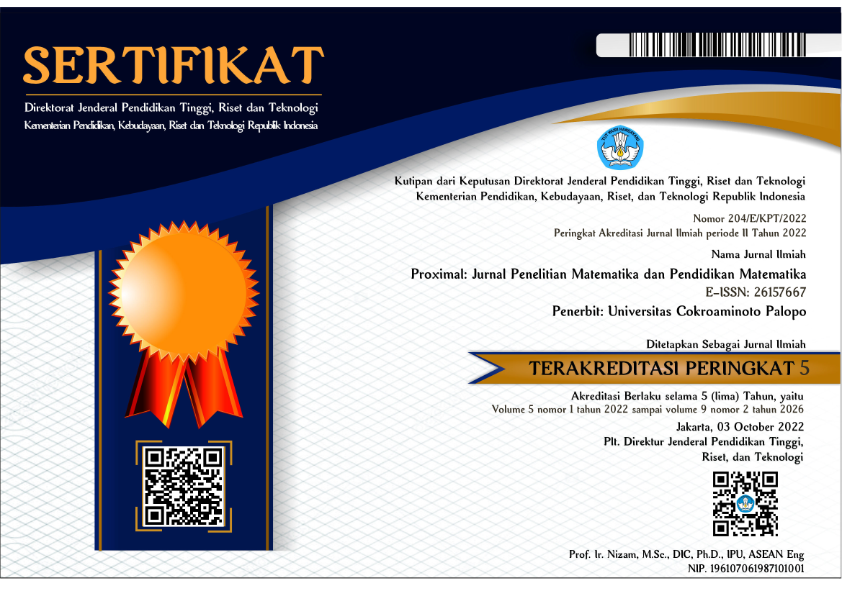Mengulik Efektivitas Flipped Classroom dengan Pendekatan Scaffolding guna Mengakselerasi Penguasaan Matematika Siswa
DOI:
https://doi.org/10.30605/proximal.v7i2.3967Keywords:
Flipped Classroom, Scaffolding, Penguasaan MatematikaAbstract
Penelitian ini bertujuan untuk mengevaluasi efektivitas model pembelajaran flipped classroom dengan pendekatan scaffolding dalam meningkatkan penguasaan matematika siswa. Rendahnya hasil belajar matematika di Indonesia, seperti yang tercermin dari data PISA dan Asesmen Nasional, menyoroti perlunya inovasi dalam metode pembelajaran. Penelitian ini menggunakan pendekatan Systematic Literature Review (SLR) dengan metode PRISMA untuk mengidentifikasi, menilai, dan mensintesis literatur yang relevan dari database Scopus, Springer, dan Google Scholar. Dari 1473 artikel yang ditemukan, 32 artikel memenuhi kriteria inklusi dan dianalisis lebih lanjut. Hasil penelitian menunjukkan bahwa model flipped classroom dengan pendekatan scaffolding efektif dalam meningkatkan hasil belajar matematika siswa. Model ini memungkinkan siswa untuk mempelajari materi secara mandiri sebelum kelas, sementara di kelas mereka terlibat dalam aktivitas interaktif dengan dukungan bertahap dari guru. Penerapan model ini terbukti meningkatkan pemahaman konsep dan kemampuan pemecahan masalah siswa secara signifikan. Artikel ini memberikan kontribusi dalam pengembangan model pembelajaran inovatif dan efektif untuk meningkatkan penguasaaan matematika.
Downloads
Downloads
Published
How to Cite
Issue
Section
License
In submitting the manuscript to the journal, the authors certify that:
- They are authorized by their co-authors to enter into these arrangements.
- The work described has not been formally published before, except in the form of an abstract or as part of a published lecture, review, thesis, or overlay journal.
- That it is not under consideration for publication elsewhere,
- That its publication has been approved by all the author(s) and by the responsible authorities – tacitly or explicitly – of the institutes where the work has been carried out.
- They secure the right to reproduce any material that has already been published or copyrighted elsewhere.
- They agree to the following license and copyright agreement.
License and Copyright Agreement
Authors who publish with this journal agree to the following terms:
- Authors retain copyright and grant the journal right of first publication with the work simultaneously licensed under Creative Commons Attribution License (CC BY 4.0) that allows others to share the work with an acknowledgment of the work's authorship and initial publication in this journal.
- Authors are able to enter into separate, additional contractual arrangements for the non-exclusive distribution of the journal's published version of the work (e.g., post it to an institutional repository or publish it in a book), with an acknowledgment of its initial publication in this journal.
- Authors are permitted and encouraged to post their work online (e.g., in institutional repositories or on their website) prior to and during the submission process, as it can lead to productive exchanges, as well as earlier and greater citation of published work.















